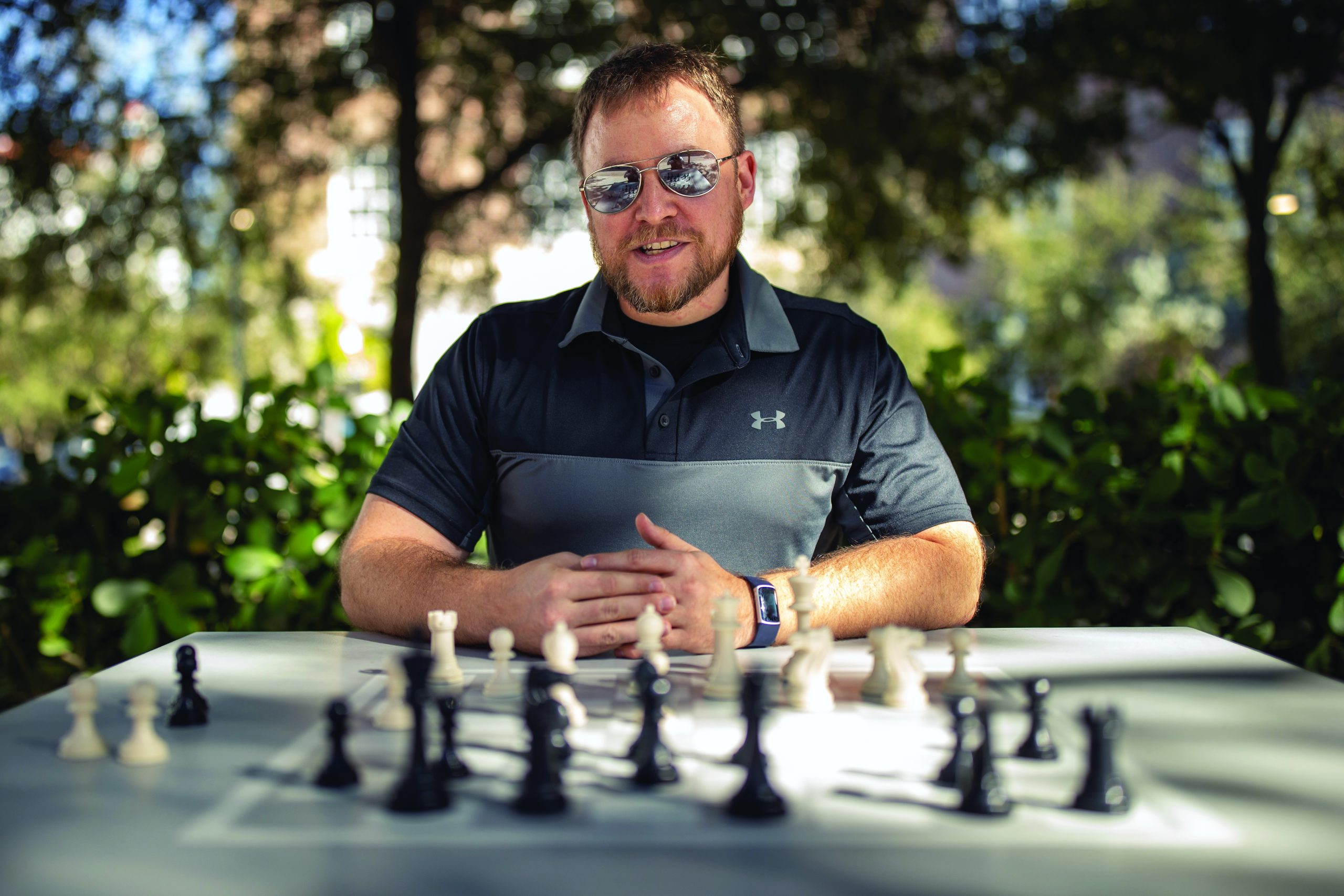In our March issue, we caught up with chess National Master Bryan Tillis, whose many endeavors revolve around his favorite game—from hosting the weekly Palm Beach Chess Club in Palm Beach Gardens, to teaching champion chess students at institutions such as Franklin Academy and the Greene School, to authoring books and running the marketing and communications department of US Chess.
In this Web Extra, we dig a little deeper into Tillis’ wealth of chess knowledge, as he reflects on his learning process, on how to lose with grace, and on how to deal with the inevitable pressures of the game.
On learning from the best:
If you look historically, I can take Kasparov as an example. He rules the chess world as the No. 1 player for almost two decades. But what is most sincerely impressive about his reign is, he becomes world champion in 1985, and goes through three generations of chess players and the transition to the computer age, and using engines, and was able to adjust to modern standards. So I’ve seen that transition, where you can find old websites like chessgames.com. I trained myself in saying, I’m going to look at classic games of masters and emulate their style, and anything that made me uncomfortable I would purposely play games with that until I figured it out. Because discomfort is typically a lack of knowledge. You’re having to really work to do something. And we’re drawn towards what’s easiest, just naturally as people.
On handling the anxieties of the game:
In 2012, in the final game of the Alabama State Championship, my home state, I had never won the title before, and all I need is a draw to clench and become state champion. And I knew this going into the game, and my opponent went directly into my preparation. I had a winning position. I had 45 minutes on the clock. And I could not have a coherent thought go through my head—just this combination of excitement and anxiety. Very often, when you have that kind of tension and pressure on yourself, it’s like a game of hot potato. You immediately make a move so you can relax. And very often, when I’ve coached chess players, we’ve all had this shared experience that when you’re making a move, as soon as you release the piece, all the tension is gone, so you immediately see what you should have done, because you relaxed.
So I spent 20 minutes pacing the room, just to try to relax myself and get presence of mind. Because I had the time. You can use the time as you see fit during the game. I was able to sit down, and from a winning position, I was able to find a draw, which is what I needed, and became state champion. So that was a pivotal moment from learning to deal with that anxiety and stress and pressure that you’re putting on yourself.
On dealing with loss:
For me personally, it’s always rough. Even today, and I’m not actively competing like I was in the past. You’re never stopping being hypercritical on yourself. I talk to my students about how you can be upset, but never show you’re upset to your opponent. You can come talk to me, you can cry, you can show any emotion, but you don’t show it to the opponent, and you definitely don’t take it out on the opponent, because it’s terrible sportsmanship.
I think to a certain extent, it’s different than many endeavors, because it’s a deeply psychological game, and it’s only you. There are no excuses. It’s not, well, we lost the game because the third baseman dropped the ball. This is 100% you, and it does teach you how to reflect on loss better than other endeavors.
This Web Extra is from the March 2025 issue of Boca magazine. For more like this, click here to subscribe to the magazine.







